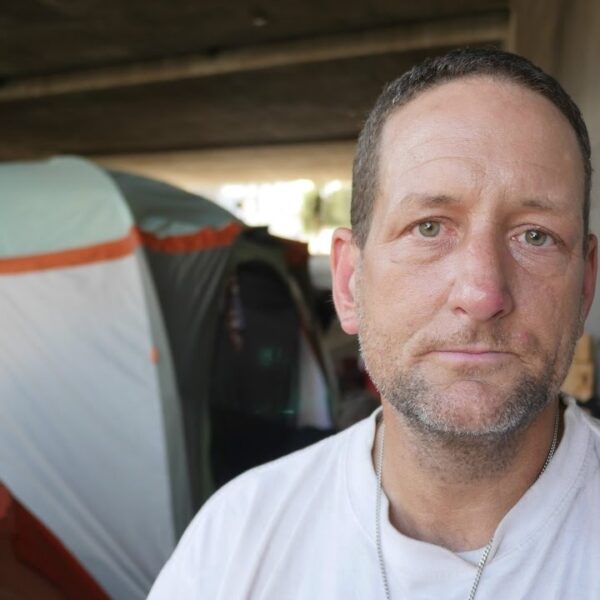Senate Bill 406 Would Establish a Pilot Program to Address Individual Causes of Homelessness Vs. a Reactive Approach
New Hampshire lawmakers are debating a bill that could give local service providers a flexible funding source to prevent people from becoming homeless.
The bill, known as Senate Bill 406, would use $5 million of American Rescue Plan Act funds to establish a pilot program within the state Department of Health and Human Services. Sen. Donovan Fenton, who introduced the bill, said the funding can be used to help people address individual circumstances that can lead to homelessness, like paying an overdue doctor’s bill.
It was introduced at a time when the number of people experiencing homelessness in New Hampshire has increased by more than 50% since the pandemic began, according to data from the federal point-in-time count.
“We have to look at all of this from a different perspective,” Fenton told Invisible People in an interview. “We just fund homelessness into shelters and other programs, but those are reactive solutions. Instead, we need to be looking upstream.”
The increase in homelessness in New Hampshire is happening at a time when state and federal officials have increased funding for local homeless services.
For instance, the state received an $850,000 federal grant in August 2023 to expand the Concord Coalition to End Homelessness’ facility and connect people with permanent supportive housing. New Hampshire also received roughly $12 million from the Biden-Harris administration in February 2024 to expand housing placement and supportive services to people experiencing homelessness.
However, the funding isn’t enough to stem the rising tide. Fenton said one issue is that some New Hampshire homeless service programs are designed to help someone once they become homeless instead of preventing them from becoming homeless in the first place.
“We’re still facing this problem despite all the services we have, and it’s not going away,” Fenton said. “So, let’s change the model and start helping people based on their individual needs.”
States across the country are also debating how to best address homelessness at a time when the number of people experiencing homelessness nationwide increased to 653,000 in 2023, representing a 12% increase year-over-year.
In turn, cities like Houston, Texas, have worked to align their city, county, and nonprofit efforts to address individual causes of homelessness. The strategy is one reason the city saw its homeless population decline by 64% over the last 12 years.
While these efforts are welcomed and necessary, Fenton added that there is more work to be done to help close the affordable housing gap, which he said is the primary driver of homelessness in New Hampshire.
The National Low Income Housing Coalition’s 2023 The Gap report shows that New Hampshire has a deficit of more than 19,000 affordable homes for low-income households, defined as those earning 50% or less of the state’s median income.
The gap is even more pronounced in the densely populated Boston-Cambridge-Newton metro area, where there is a deficit of more than 139,000 affordable homes for low-income earning households, according to the report.
Those issues won’t likely fade anytime soon as real estate developers grapple with high material costs and labor shortages. Both of these issues have caused construction activity in the state to slow down considerably. That has helped push the state’s median rent for a two-bedroom apartment up 11.4% year-over-year to about $1,764 per month, according to data from New Hampshire Housing.
Fenton added that New Hampshire’s increasing median rent is one factor that has contributed to the state’s rising homeless population. Since 2014, data from New Hampshire Housing shows the state’s median rent has increased by roughly $600 per month. A report from the Government Accountability Office in 2020 found that a $100 per month increase in rent is associated with a 9% increase in rates of local homelessness.
“There are so many layers to this issue that we really need to address them all,” Fenton said.
How You Can Help
Now is not the time to be silent about homelessness in the U.S. or anywhere else. Unhoused people deserve safe and sanitary housing just as much as those who can afford rent or mortgage.
Poverty and homelessness are both policy choices, not personal failures. That’s why we need you to contact your officials and tell them you support legislation that:
- Streamlines the development of affordable housing
- Reduces barriers for people experiencing homelessness to enter permanent housing
- Bolsters government response to homelessness
Together, we can solve homelessness.













